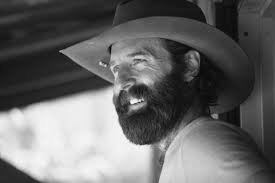By Sean Dietrich
Nashville, Tennessee—Nathan is twelve. He is on his way to soccer practice. His mother is driving. He is in the backseat of the car. He sees something.
“Pull over, Mom!” says Nathan.
She does.
It’s a family, walking along the shoulder of the road. They are Hispanic. A woman pushes a stroller, two young boys walk behind her. None of them speak much English.
But this is no problem. Nathan has been taking Spanish in school. Nathan translates. He tells his mother that the family’s car has broken down.
So, his mother calls a tow truck. While they wait, Nathan’s mother treats the family to supper. They carry on choppy conversations in broken tongues. Nathan translates the best he can.
By the end of the night, two families have become friends. And to shorten a long story, today Nathan is a grown man who can say things in Spanish, and explain them.
For instance, Nathan tells me: “Did you know that ‘bondad’ means ‘goodness’ in Spanish? It’s my favorite word.”
Bueno, Nathan.
Katy, Texas—She is an EMT student. She doesn’t know whether she wants this for a career. She’s been on ride-alongs, sitting in ambulances, watching emergency workers. She has seen some terrible scenes.
“The first accident I ever saw,” she says, “was so traumatic, I couldn’t stop thinking about it for months. I just didn’t know if I was cut out to be a paramedic.”
One night, she is walking into a movie theater. She sees an old woman leaving the theater. The woman stumbles on the curb and falls onto her face.
Blood. Broken bones. Hollering. It is a mess.
The EMT in her kicks into action. The staff brings her an emergency first-aid kit. She dresses the woman’s wounds just like she’d been studying. She immobilizes the woman’s neck. She keeps her calm.
“I was cool under pressure,” she says. “It surprised me. I was like, ‘Hey dude, I can actually do this.’”
She rides with the woman to the hospital. She calls the family and tells them she is all right.
Today, she’s a ten-year first-responder veteran. A paramedical instructor. A mother of three. A hero.
Chanute, Kansas—Gary has no high school education, a minimum wage fast-food job, and not much money. He’s dropped out of school to become a full-time caregiver to his older brother, who is in a wheelchair.
Gary’s brother needs help bathing himself, feeding himself, and using the bathroom.
Looking after his brother is more important than textbooks and pencil sharpeners. Doctors don’t know how much time Gary’s brother has left.
And as it happens, Gary’s brother doesn’t have much time. He dies when Gary is twenty-four.
A few weeks after the funeral, a man shows on Gary’s porch. He is a distant cousin. He is a pipe-welder. He tells Gary he wants to pay for welding school if he is interested.
“No thanks,” says Gary. “I don’t wanna be a welder.”
“Think it over,” the man goes on. “Welders make good money.”
It is quite an offer from a half-stranger.
Gary takes him up on it.
And as fate has it, he is a natural. He is not only good at welding, he is an expert underwater welder.
Today, he has seen almost every state in the Lower Forty-Eight, and even gone to Hawaii once.
And as of last year, he just completed his college education. He majored in English. He likes literature and poetry the best.
“Welding school changed my life,” says Gary. “It’s funny, I wish my brother could see me now, I think he’d be proud of me.”
I have more stories I want to tell you—a lot more—but I don’t have enough room.
So before I go, there’s something I received in the mail a few days ago. The letter was from Nashville, Tennessee, from a man who teaches Spanish for a living, and coaches soccer on the weekends.
A man who still remembers giving a ride to strangers once, when he was a boy.
The letter reads: “I truly believe there’s more good (bondad) out there than the television people want us to know about…”
I believe that, too, Nathan.
Gracias.
Sean Dietrich is a columnist, and novelist, known for his commentary on life in the American South. His work has appeared in Southern Living, the Tallahassee Democrat, Southern Magazine, Yellowhammer News, the Bitter Southerner, the Mobile Press Register and he has authored seven books.

